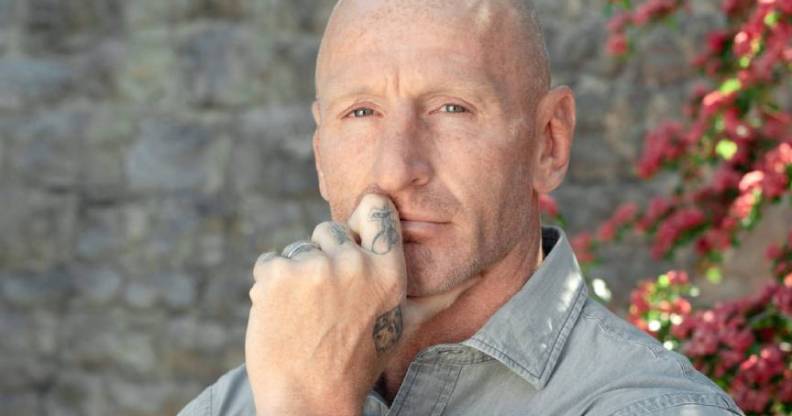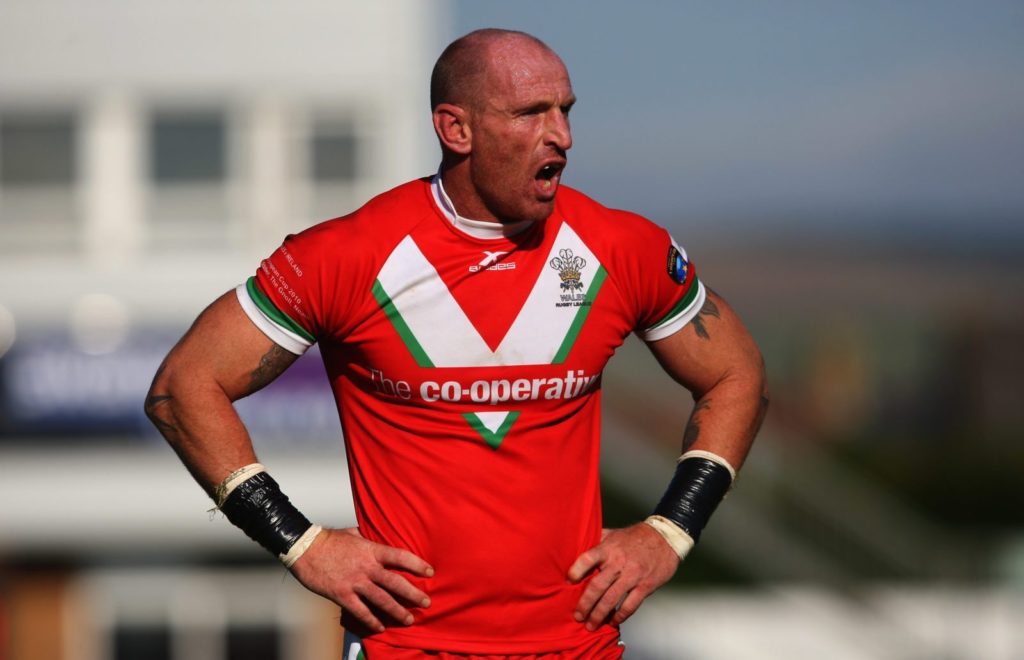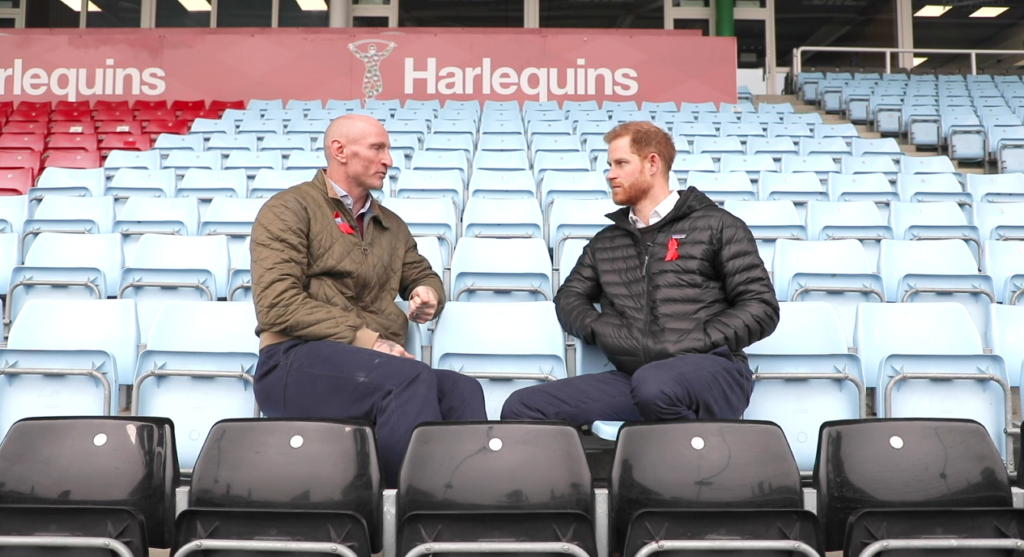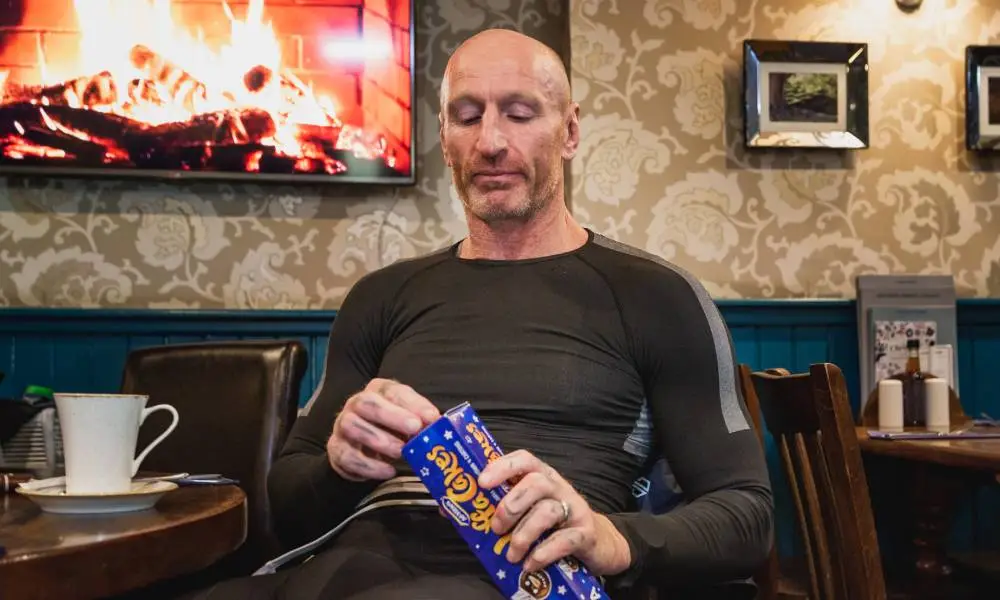Gareth Thomas, one of Britain’s most powerful gay men, says even he still gets called a f*g

Gareth Thomas says that even today, he still encounters homophobia. (Supplied)
A decade after he first opened up to the public about his sexuality, Gareth Thomas says that he still faces homophobia.
Having retired from sport in 2011, and after a brief foray into reality television, Thomas’ second act has been his most impactful. Capitalising on his status as Britain’s most high profile out sportsperson, the Welshman has dedicated himself in recent years to fighting discrimination – but that doesn’t mean he’s exempt to being on the receiving end of it.
“When I see a lot of it is when I’m sitting around with my friends, and they chuck off the word fag,” he tells PinkNews.
“To them, that’s not hate, but it is. There are so many people who think they’re liberal, but they’ll walk into a bar and be homophobic, or be racist.”
Gareth Thomas: ‘We have to find the source of hate and eradicate it.’
Stuck at home under lockdown in Wales, Thomas has been reading the works of Black civil rights leader Malcolm X, jolted into action as so many have been by the killing of George Floyd and the Black Lives Matter protests which have followed.
He’s particularly taken by his idea that there is, in essence, no difference between the openly racist “wolves” who are violent towards Black people, and the apparently liberal “foxes” who hide their venom behind gleaming, fanged smiles, but are just as big a threat. This, he thinks, remains true today for all forms of prejudice.

Gareth Thomas in 2010, a year after he came out, and shortly before he retired from rugby.(Getty/Stu Forster)
“There are probably so many conversations going on right now in people’s living rooms with people saying things they’d never say in public,” Thomas says.
“We continue to evolve to stop hate from happening publicly and to stop celebrating people who are discriminative. But to really end it, people need to know that it’s not good at any time. We have to find the source of the hate and eradicate it, so that it doesn’t happen in private places where people think they can get away with it.”
Similarly, Thomas says, there are many who think proximity to queer people, or Black people, or any minority, means they’re immune from being bigoted.
“I have so many people who might say negative things to me,” he says. “I’ll call them out on it and they say, ‘I can’t be homophobic, I’ve got a gay friend.’
“Well I’m gay, and I could be homophobic if I want. You can’t justify it.”
Well I’m gay, and I could be homophobic if I want. You can’t justify it.
By this, he means that within the LGBT+ community can at times be guilty of hate. When Thomas discovered he was living with HIV, he says, he came face-to-face with the stigma and discrimination that queers can perpetrate against their own. Then, there’s the small but vocal group who claim to be LGB, but hate transgender people. And, as he’s quick to point out, the community has well-documented problems with racism.

Thomas has teamed up with Price Harry to combat HIV stigma. (Screenshot)
“We can do more,” he insists. “We need to do more. We can voice our opinions, show our support. Let’s take this opportunity to understand what discrimination is, how many forms it comes in, how hidden discrimination affects people. Now is the time for us to get out there and show our support.”
As somebody who abhors all forms of hate, Thomas is hopeful that the unprecedented Black Lives Matter uprising acts as an impetus for further conversations around topics such as homophobia, transphobia and HIV stigma.
“I think now is such a powerful time for us all to come out against every form of discrimination,” he says. “To say Black Lives Matter. Trans lives matter. Queer lives matter.”
Gareth Thomas is a wealthy white cis man. But he is also gay, and living with HIV, meaning that he has if not an understanding of, then an empathy for the issues those with less privilege face.
“I could never imagine what it’s like to be Black, just like a straight Black man could never imagine what it’s like to be discriminated against for being gay. But I think [white cis gay men] should have more of an empathy than your stereotypical straight white man or woman.”
Of course, hate doesn’t exist in silos. People who are Black and queer face double discrimination. The trans community is desperately calling on those who support Black Lives Matter to recognise that Black Trans Lives Matter in equal amounts, just as the wider trans community is pleading with LGBT+ advocates to stand in solidarity with them as the government allegedly prepares to repeal vital rights.

Gareth Thomas says he still suffers homophobia. (Getty)
Of the extremely small but incredibly vocal section of the LGB community that has been radicalised by transphobia, Thomas says cis queers in particular should use their “majority” voice to “drown them out”.
“Especially in Pride Month. Fifty-one years [since Stonewall] isn’t that long. It’s important for us to not just say: ‘Oh we haven’t got a party to go to, we want to get drunk and celebrate the Pride that we have in being gay,’ but for us to use this time to become vocal. We don’t have the visual presence of the parade so we have to be vocal about how much we want equality.'”
For now, he’ll continue to educate himself and speak out on the “difficult” subjects, from racism and homophobia – including the ban on sexually active queer men from giving blood, which he says is “almost a green light for others to justify their discrimination” – to the challenges faced by those who’ve said goodbye to loved ones during the pandemic.
According to will writer and death specialist Farewill, 94 per cent of people who have had to deal with a bereavement say the virus has made things even worse, something Thomas experienced recently when he lost an uncle, who died alone in hospital.
“Death is incredibly stressful – especially if it’s the first time someone has had to deal with a death,” he says. “It can leave your head all over the place.
“The pandemic has definitely made me sit back and take stock of my life. You just don’t know what’s around the corner.”

